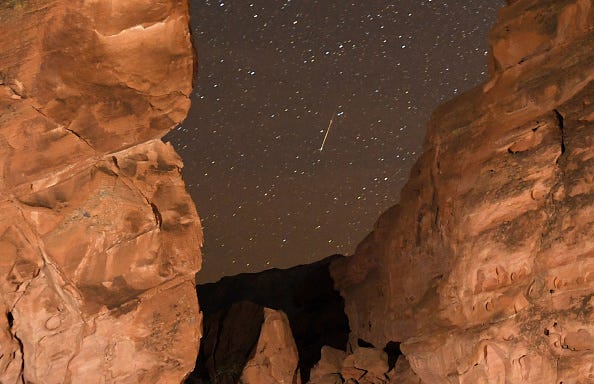
Is it a plane? An alien invasion? Superman? Nope, it's just a meteor shower. The space rocks known as the Geminids are returning on Monday evening and Tuesday morning.

Staying up to see the meteor shower will be worth it, as NASA has called it "one of the most reliable" shower's of the year.
NASA also suggested that the Geminids could show numerous shooting stars per hour during the peak of the shower.
There will be plenty of places to see the space rocks, including at Stonehenge which shared a photo of them the last time they came through on Twitter.
The meteor shower got its name from the Gemini constellation. It was caused by the rock comet 3200 Phaethon, which scientists at NASA believe is a Palladian asteroid with a "rock comet" orbit.
This also means that the Geminids are one of the only major meteor showers to not come from a comet.
While the meteor shower will show streaks of light racing across the sky, there will be lower visibility due to this year's moon being 78% full.
While meteor shower will be seen around the world, NASA says that the Northern Hemisphere will be the best place to see it.
For those interested in viewing the show, the peak time to watch the light show will be 2 a.m. EST after the moon starts to set and when the shower will produce more than 50 meteors per hour.
Telescopes won't be needed for those interested in viewing as the shower should light up the sky.
Those who don't want to brave the elements can watch from home on NASA's Livestream starting at 9 p.m. EST.


